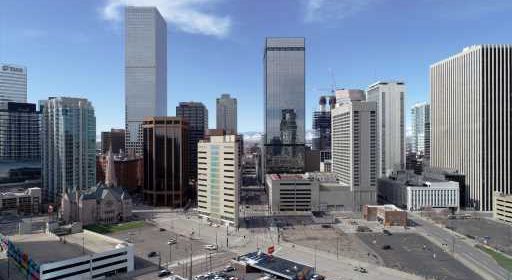Black Denverites disproportionately impacted by coronavirus, data shows

Black Denverites have been impacted by the novel coronavirus at higher rates than white or Hispanic and Latino residents in the city, preliminary data released Friday by Denver Public Health shows.
The numbers offer the first glimpse into how the virus may be disproportionally affecting black people in the Mile High City, as data in other states has shown the global pandemic to be particularly cruel in communities of color.
Denver’s black population has been overrepresented across total cases, hospitalizations and deaths from COVID-19, the highly infectious respiratory illness caused by the virus, the data shows. It is important to note that the small sample size makes it difficult to draw definitive conclusions at this early stage. As more data is reported, stronger correlations can be gleaned.
But Denver’s initial data depicts much of what has been seen in cities such as Milwaukee and Detroit, where black communities have seen far higher rates of COVID-19.
Of Denver’s 1,152 people with confirmed infections, 13% have been black, though the city’s black population stands at 8%. White, non-Hispanic residents make up 54% of the city but just 40% of the total cases. The Hispanic/Latino population makes up 30% of Denver’s residents, and has 24% of total COVID-19 cases.
Hospitalization numbers tell a similar story: Of the city’s 351 total hospitalizations, patients who are black make up 19%, the same percentage as white patients, according to Denver’s data. Hispanic/Latino residents have the highest rates at 27%, though that is below its share of the population. More than one-quarter of the hospitalizations recorded in this data set were marked as unknown race or ethnicity.
Denver has recorded 47 deaths in the city related to the novel coronavirus, so the sample size remains small. The limited data, however, shows deaths among black residents at 11%, higher than its percentage of the population, with white deaths at 33% and Hispanic/Latino deaths at 19%. As with hospitalizations, 26% of the cases had an unknown race or ethnicity.
The city also released updated maps Friday showing North and South Park Hill neighborhoods had Denver’s highest rates of COVID-19 with 1.85 and 1.88 cases per 1,000 people, respectively. Washington Park (1.86) and Whittier (1.85) also ranked at the high end for total cases per capita.
Health officials for weeks have cautioned that limited testing has resulted in lower numbers of confirmed COVID-19 statewide, and that the actual number of infected people is likely four to 10 times higher.
As the new coronavirus began to spread through the county last month, some national experts warned that residents who are black would be more susceptible to the illness due to higher rates of chronic health conditions. And the Centers for Disease Control and Prevention said this week that their limited data on racial breakdowns is “suggesting that black populations might be disproportionately affected by COVID-19.”
“I think the biggest challenge is the fact that people of color, African Americans, start out with health outcomes that are disproportionately poor when compared to white Americans,” Dr. Georges C. Benjamin, executive director of the American Public Health Association, told The Undefeated in early March. “The highest risk, if you get this disease, is to someone 60 or older with chronic disease. With African Americans, you start with a population that is disproportionately sicker, and if it gets exposed, it will have a higher death rate.”
Source: Read Full Article